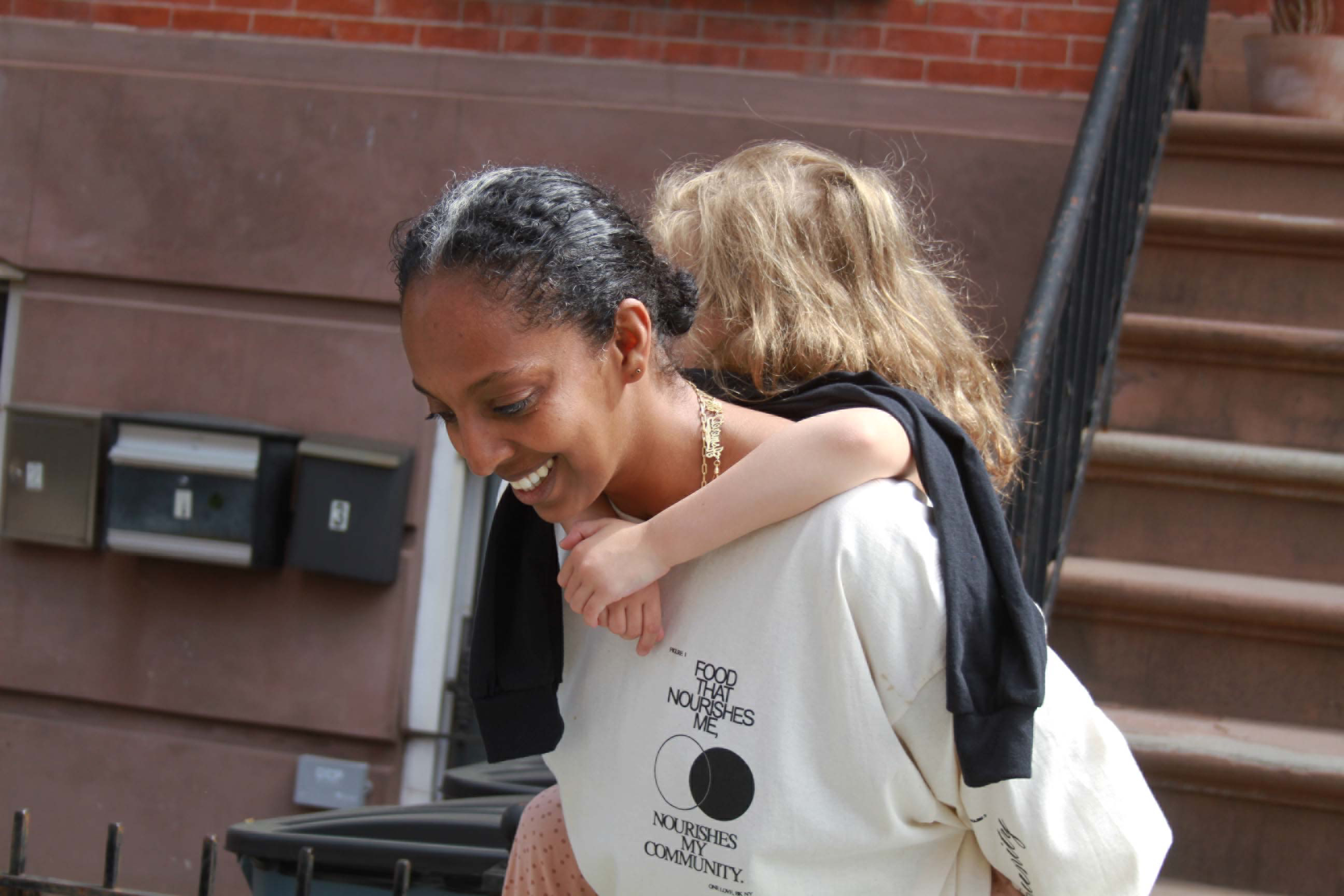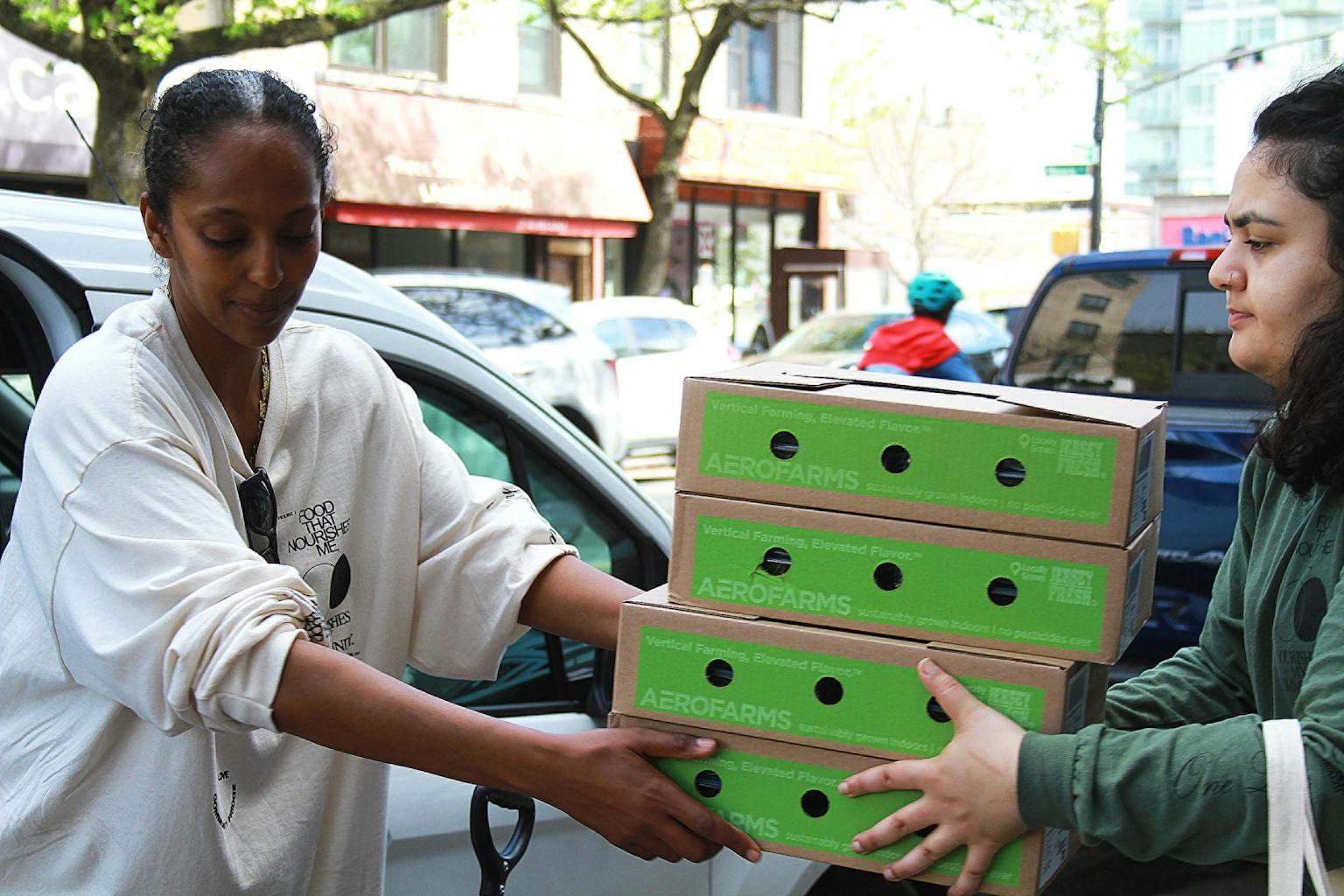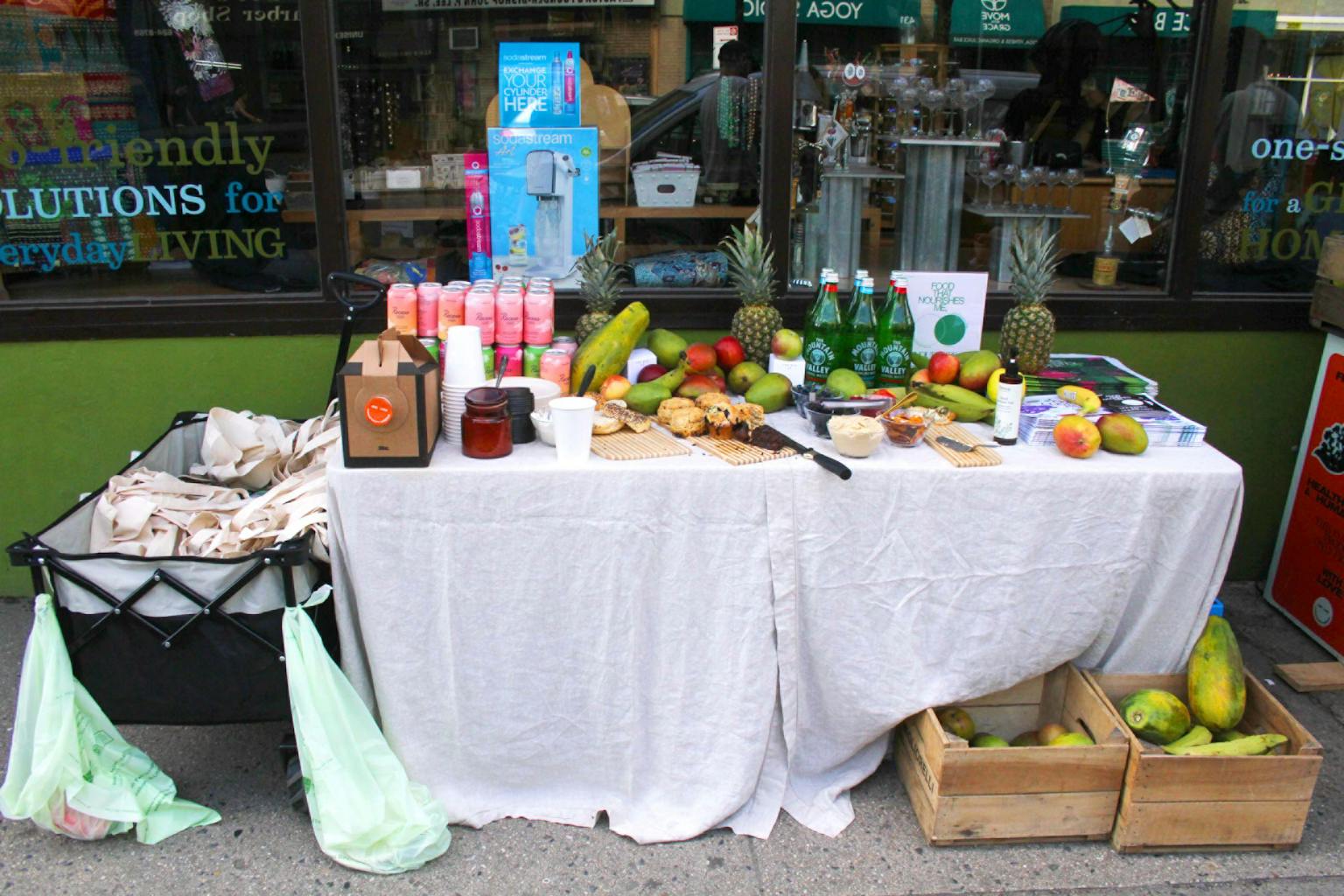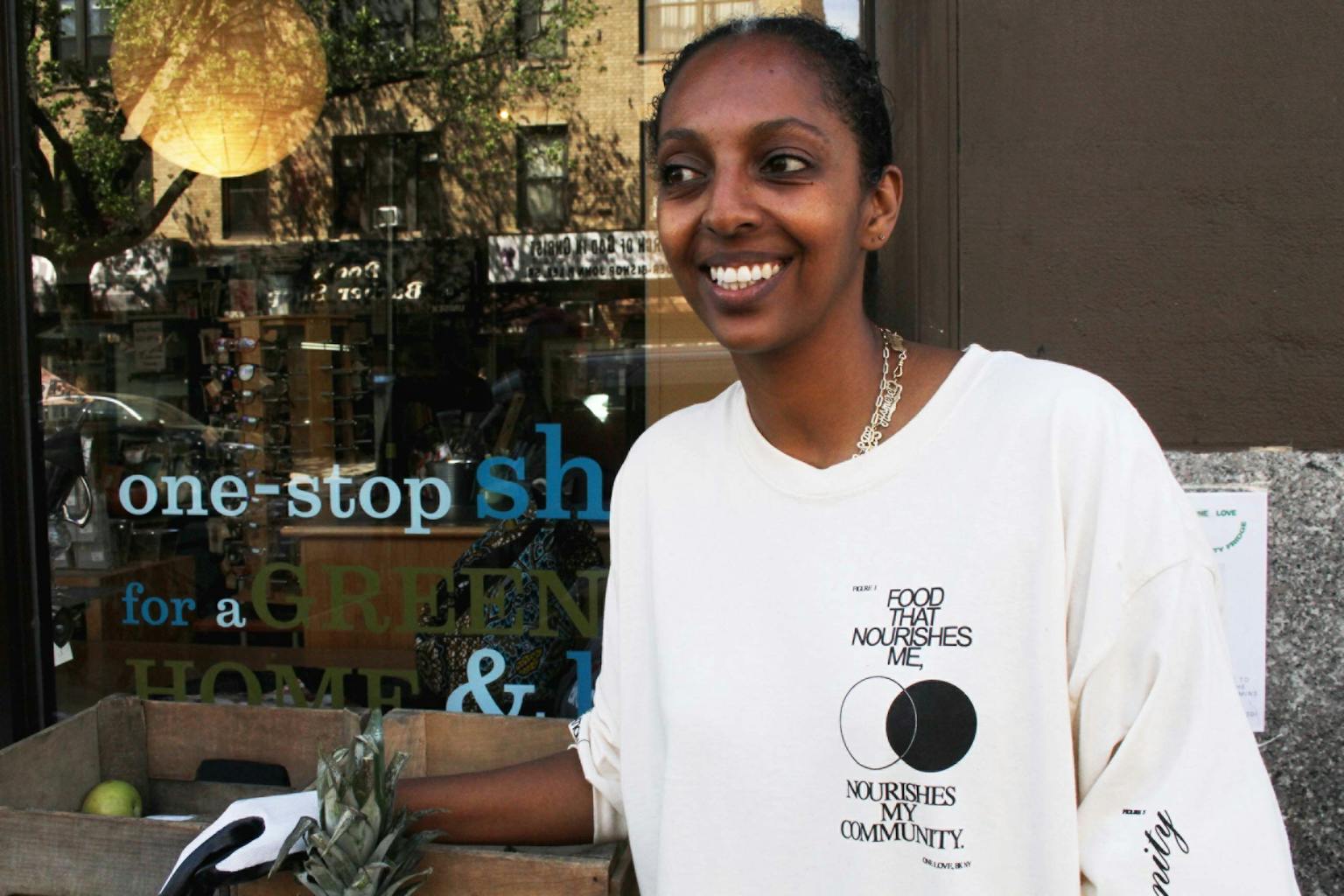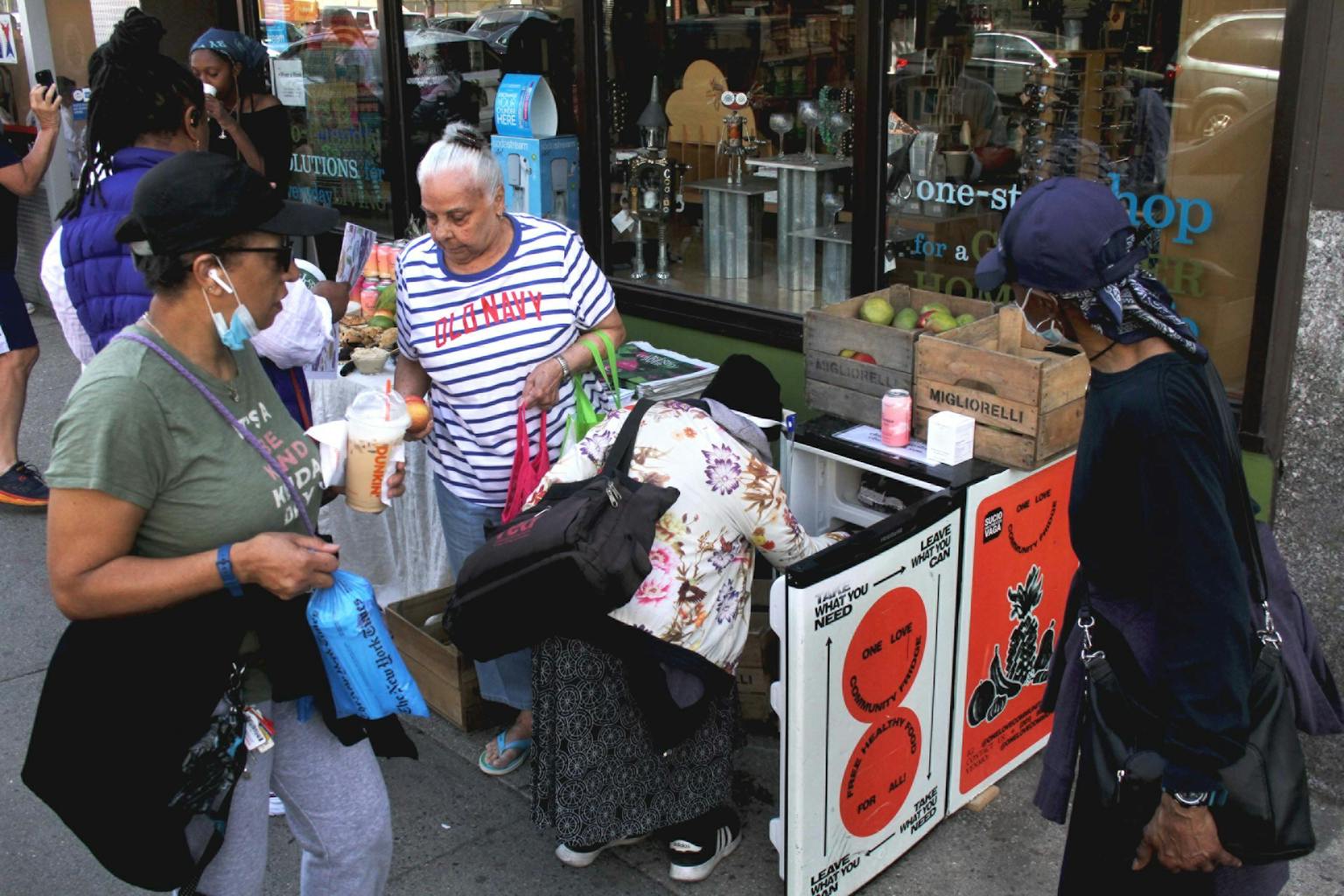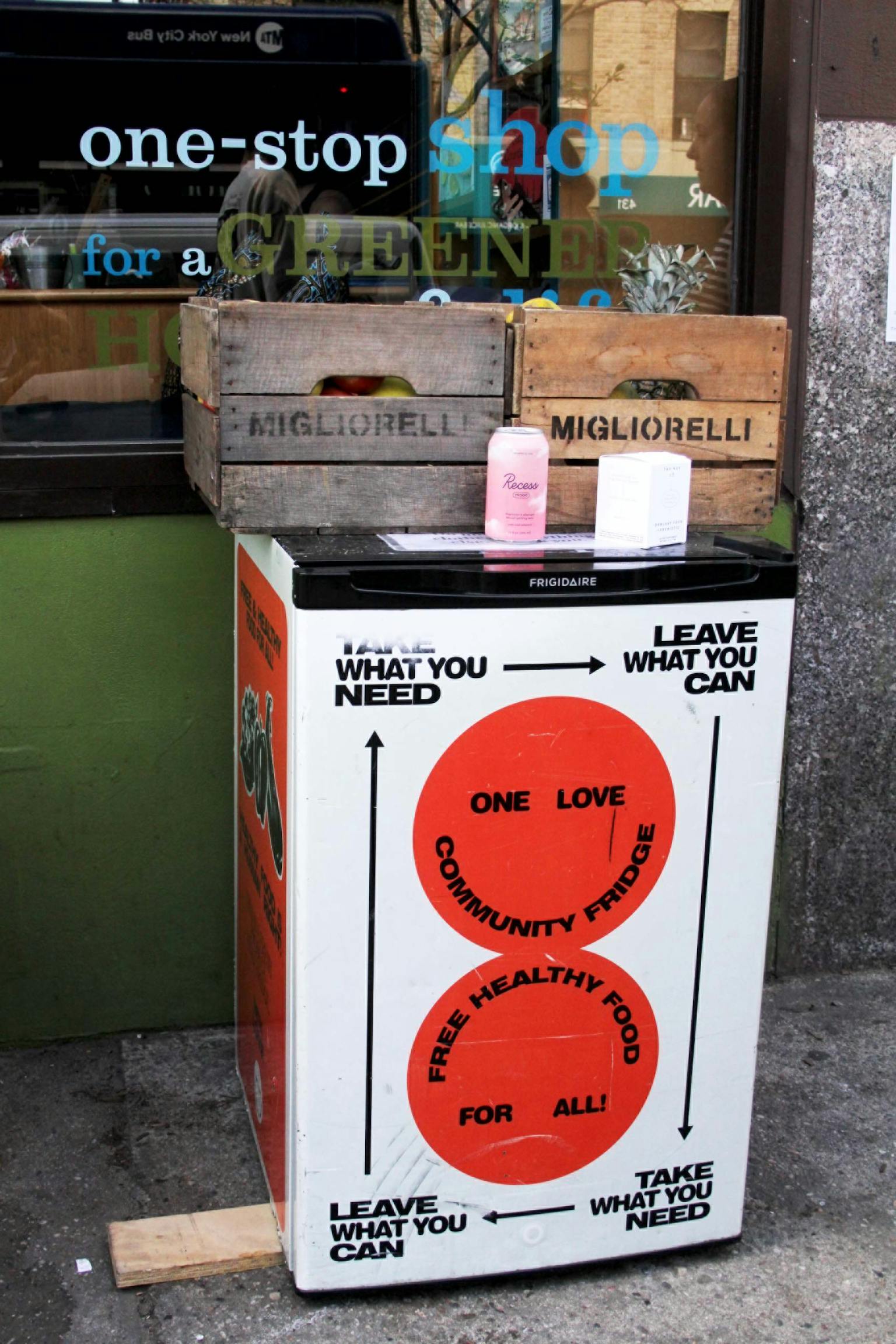A few days after International Women’s Day in early March, Asmeret Berhe-Lumax found herself sitting on a panel at an event hosted by Diane Von Furstenberg, alongside some of New York’s most accomplished women. Berhe-Lumax, Ethiopian-born, Swedish-raised, mother, activist and founder of One Love Community Fridges, had only been invited the night before. Her friend was an organizer and another speaker had dropped out. She would just have to answer one question and then would get the chance to speak about the nonprofit she leads and local activism, her friend had promised.
That question: “When was the first time you felt in charge?”
Other women in attendance recounted billion dollar deals and presidential campaigns. Berhe-Lumax talked about a memory of herself at 16 or 17.
“I just remember this whole thing where I decided I want to lead my life with kindness and empathy,” she recounts. “I think I can do that without having to compromise anything I want to achieve.”
Once she decided, her life followed that path. Now, at 45, it still does. After attending Baruch College in New York City for Business (a degree decision she chalks up to being the child of immigrant parents), Berhe-Lumax landed a finance job. She worked there for one day and never returned; it wasn’t for her. Instead, after some time on the operations side of Columbia’s Urban Planning and Architecture program, she refocused on her passion: fashion.
Berhe-Lumax has since had successful careers in all lanes of style and wellness. She founded The Black Beauty Club, a Clubhouse-based community focused on thoughtful conversation related to the Black Beauty Space. And in a slight – but only slight – divergence, she started up One Love Community Fridge, a nonprofit that works to educate and empower the community through access to healthy food.
A few days after the Women’s Day panel, Berhe-Lumax's answer wasn’t sitting right with her. She was eventually able to put her finger on why. “I realized it wasn't the true answer,” she says.
The only reason she had been able to make that conclusion at 16 or 17 was because she already felt in charge, she says. It was a feeling she had developed from watching her parents leave behind everything they knew at a young age and continue to live with grace.
“To be able to raise a family [after leaving] and to do it with integrity and respectfully,” had inspired a kind of courage in her, Berhe-Lumax recalls.
Berhe-Lumax's parents moved to Sweden from Eritrea in their twenties, after a war had forced them to flee. They were both highly educated, her dad had been a veterinarian in the country, her grandfather in parliament. Her mom had worked at her own father’s company and held a university degree. In Sweden, Berhe-Lumax's mom was a first grade teacher and her dad a postal worker.
“Even though we didn't have much, there was always food on the table, there was always enough to share with a friend or a neighbor, everyone was always welcome to come,” says Berhe-Lumax. That was why she felt in charge.
Now, more than ever, that legacy informs the work she does.
One Love Community Fridges are about building community and putting food on the table. But it goes farther than that. The nonprofit came about during the pandemic. Those left in New York City were usually the ones that had nowhere else to go, Berhe-Lumax recalls. She noticed that the communities that didn’t bounce back were often those that didn’t have access to healthy food. And community fridges were a part of that. There’s no dignity in cans of spaghettios and beef-a-roni, she thought. It’s a problem with the way we think about solutions – and power.
“The idea of beggars can't be choosers, what does that really mean?” Berhe-Lumax asks.
This line runs through Berhe-Lumax's relationship to running as well. She picked up the practice after she became a mother. At the start, she says, it was “sacred.”
“In the beginning, running was like literally the only time I was by myself,” Berhe-Lumax recalls.
Eventually, it grew into a community – joining the NYC-based team Black Roses and along the way she became the first Rose to get a BQ in 2014. She joined a bouquet of related communities, each serving a purpose depending on where she was at that point in life. Moms on the Run, a group of running mothers, became one of the most important.
“Mothers with young kids, some running for physical health or mental health… it's like therapy sessions,” says Berhe-Lumax.
She calls it the most “democratic” sport. “You see people of all ages, all shapes, there for all purposes…everyone has a unique story as to why they're running and what it means,” she says.
Like everything Berhe-Lumax does, her love for it comes down to access — and intention.
Learn more and get involved here:
website | social
Help One Love eliminate food insecurity by donating here
or through their Venmo @OneLoveCommunity.
